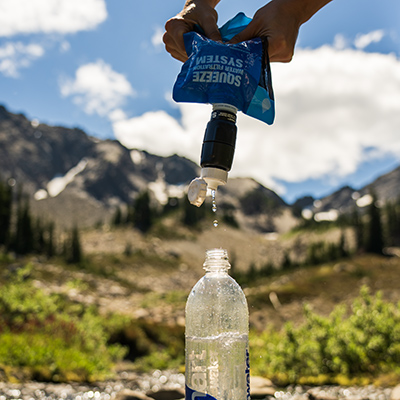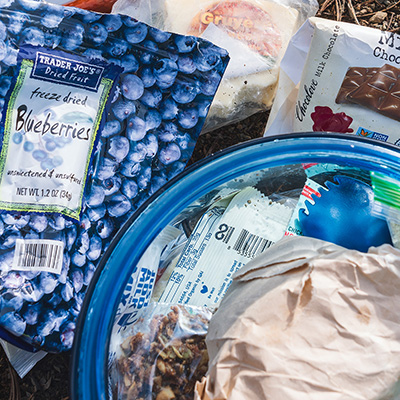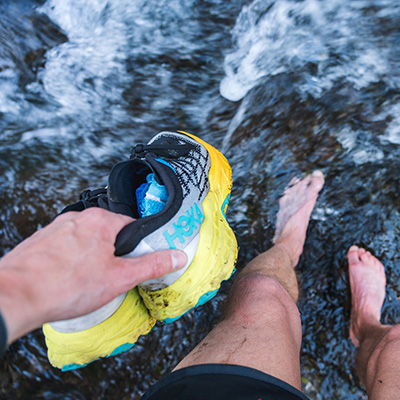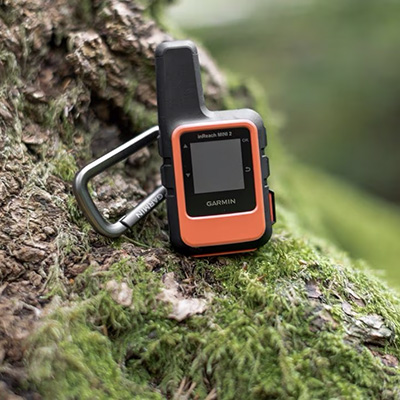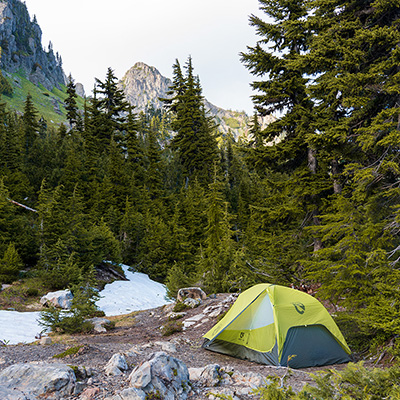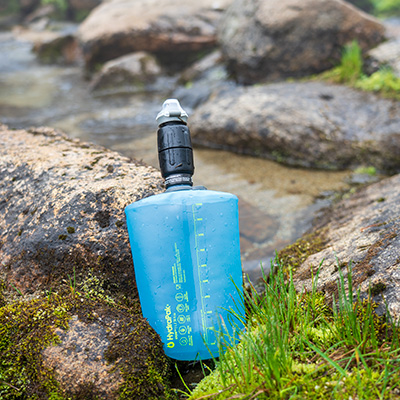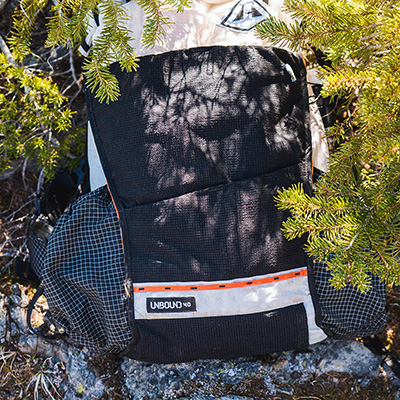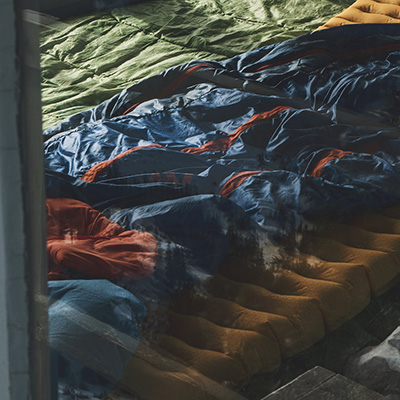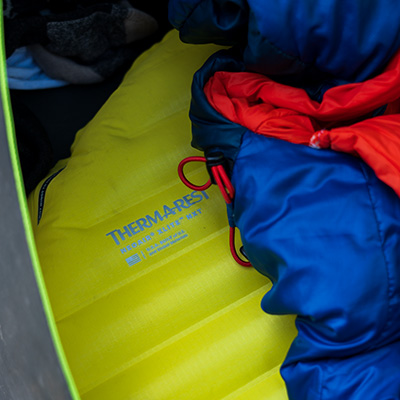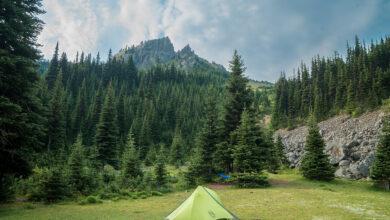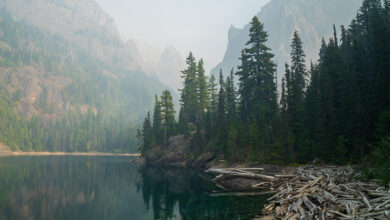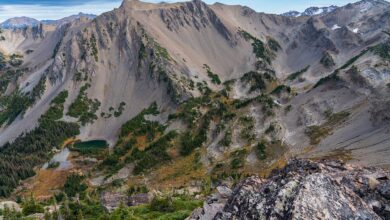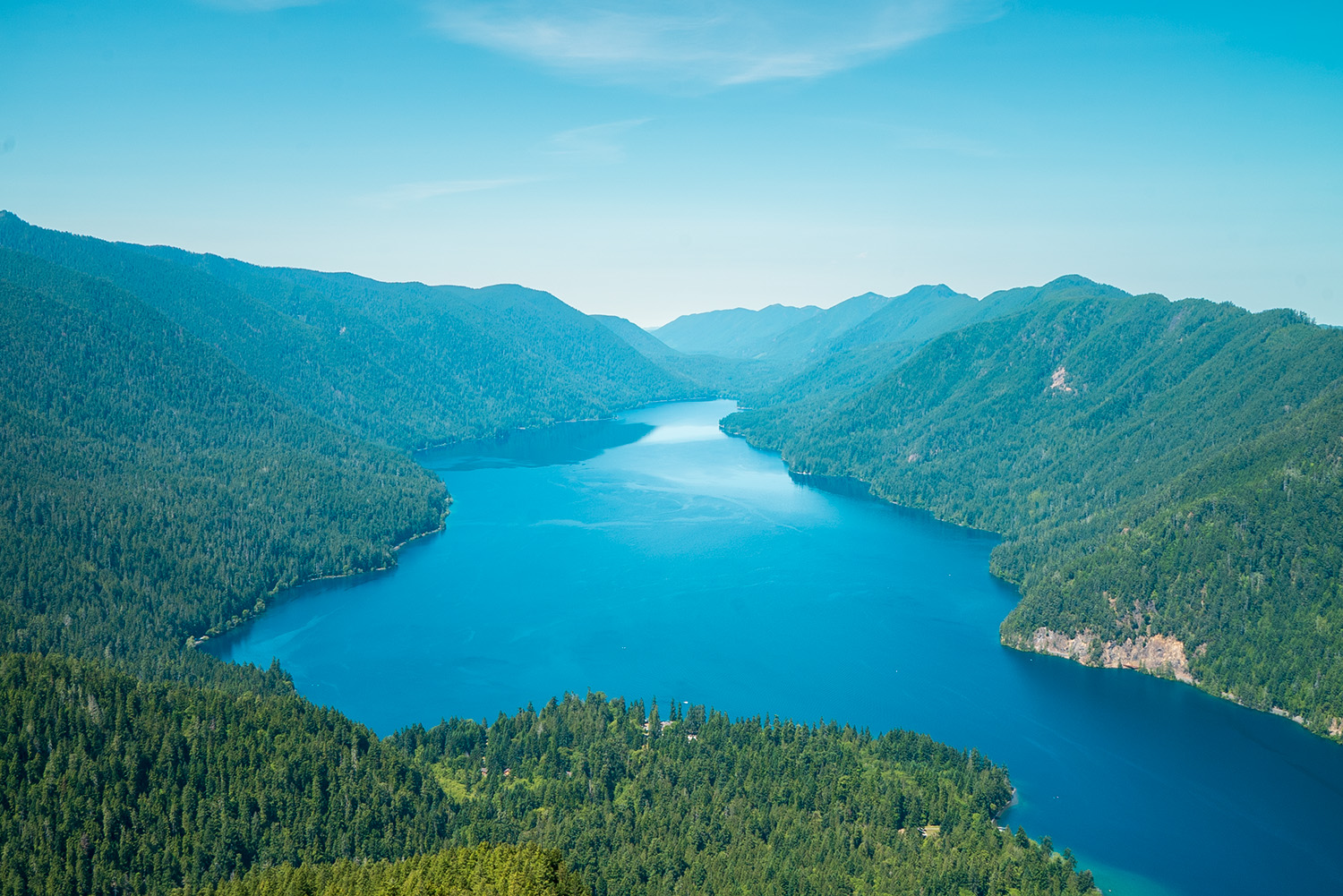
- Total Distance: 4.1 miles
- Elevation Gain: 2,100 feet
- Difficulty Level: Moderate-Hard
- Passes Required: National Park Pass
- No Camping Allowed
Mount Storm King is undoubtedly one of the most popular hikes in Olympic National Park—and for good reason. It checks many boxes: stunning views, a good challenge, and easy access. If you’ve searched online, you’ve probably seen people calling it the most scenic hike in the Olympics. While it’s certainly beautiful, I wouldn’t go that far—especially when compared to other, less-traveled areas of the park that offer equally stunning views.
That said, its accessibility makes it a go-to for many hikers, and if you’re looking for epic mountain and lake scenery on a trail that’s tough but manageable, this one is definitely worth it. In this guide, I’ll cover everything you need to know, including the best times to go and tips for making the most of it.
What is the best time to hike Mount Storm King?
Mount Storm King is accessible for most of the year. The hike starts at an elevation of around 600 feet, so snow is unlikely in the winter until you approach the summit at 2,700 feet—and even then, significant snow is rare. That said, snow can make the final section of the hike particularly challenging and even dangerous, but I’ll cover more on that later. In general, this hike can be done year-round, though the ideal time to go is between June and October.
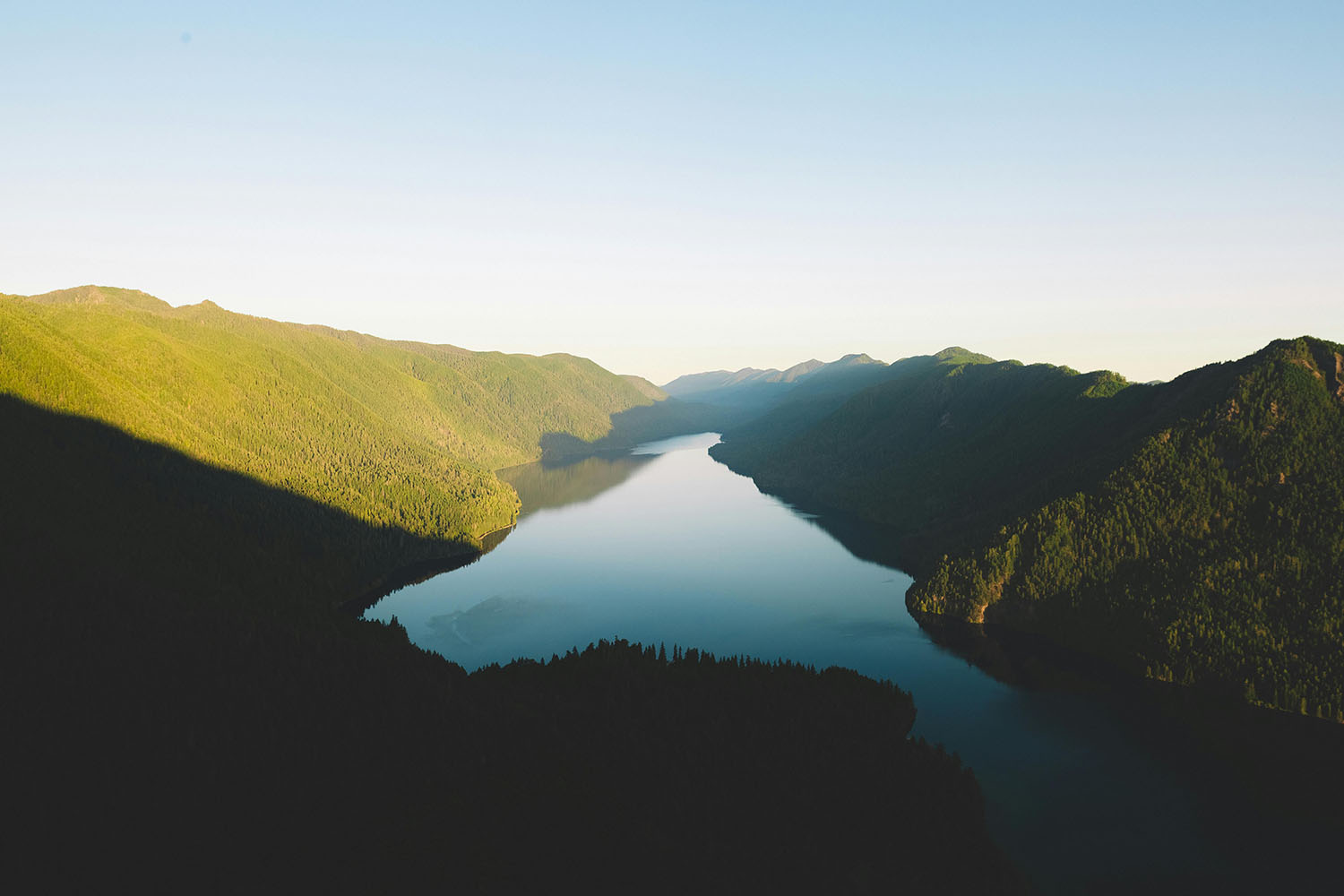
As for the best time of day to hike, sunset offers the most dramatic lighting, with a beautiful golden glow in the hour leading up to it.
Required Passes for Storm King
A National Park Pass is required for parking at the trailhead for this hike.
Getting to the Mount Storm King Trailhead
The trailhead for Mount Storm King is located near Lake Crescent Lodge, which has multiple parking areas that provide access to the hike. For navigation, use Marymere Falls Trailhead as your destination. The hike starts on the Marymere Falls Trail before branching off to Mount Storm King.
From downtown Seattle, it takes just under three hours. Take the Seattle–Bainbridge Ferry, follow WA-3 N, then connect to WA-104 W and US-101 N toward Lake Crescent.
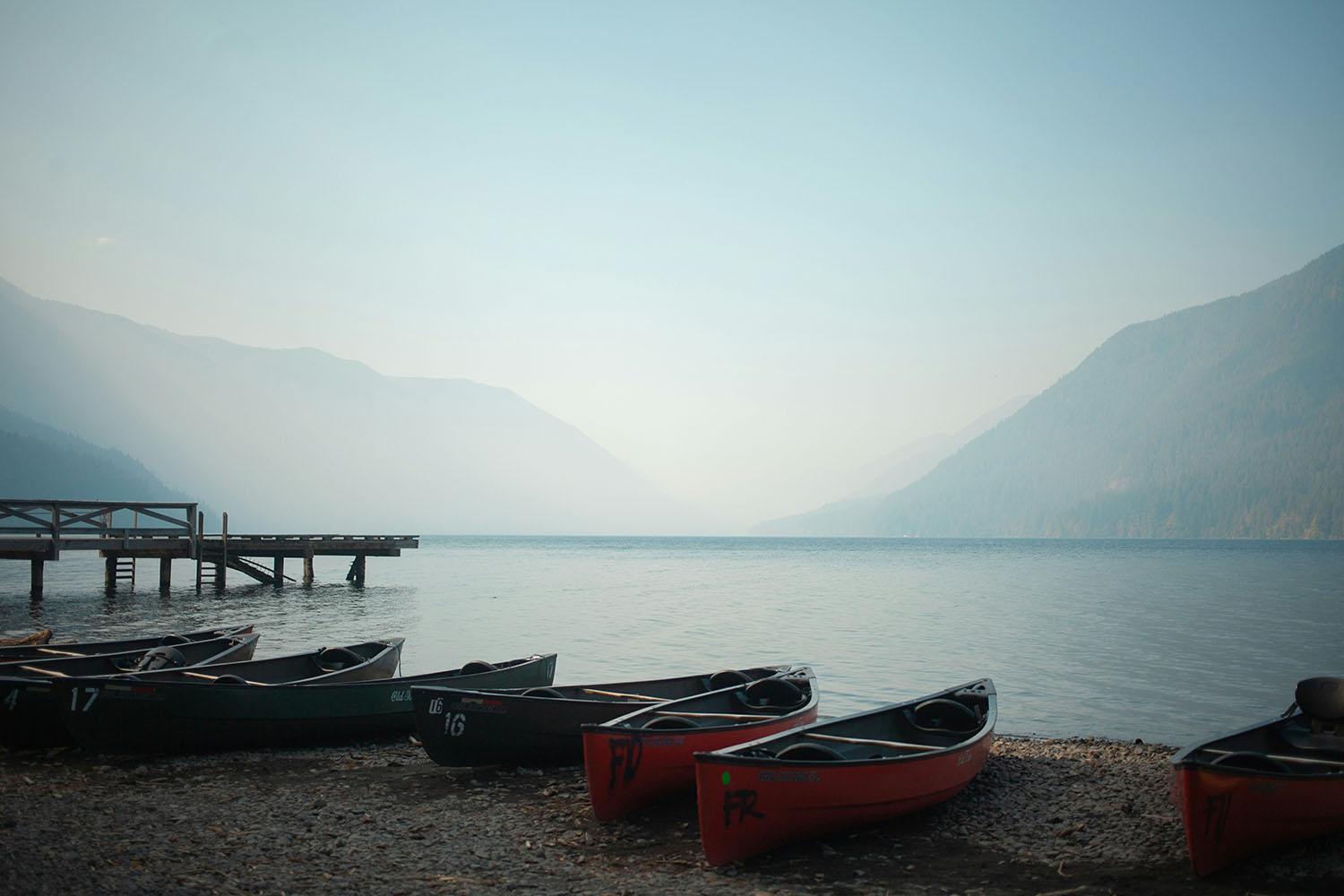
Navigating the Crowds
Did I mention this is one of the most popular hikes in Olympic National Park? With that popularity comes crowds, and as you might expect, parking at the trailhead can be challenging during peak summer months. If you don’t arrive early, you may need to search for parking in nearby lots. Alternatively, consider hiking in the afternoon to catch the sunset at the summit—crowds tend to thin out later in the day, and you’ll be rewarded with the best lighting for those stunning views.
The Trail to Mount Storm King
The trail begins at the Storm King Ranger Station near the trailhead, right next to the shimmering blue waters of Lake Crescent. A convenient tunnel passes under Highway 101, so you can avoid crossing the often-busy road by going beneath it.
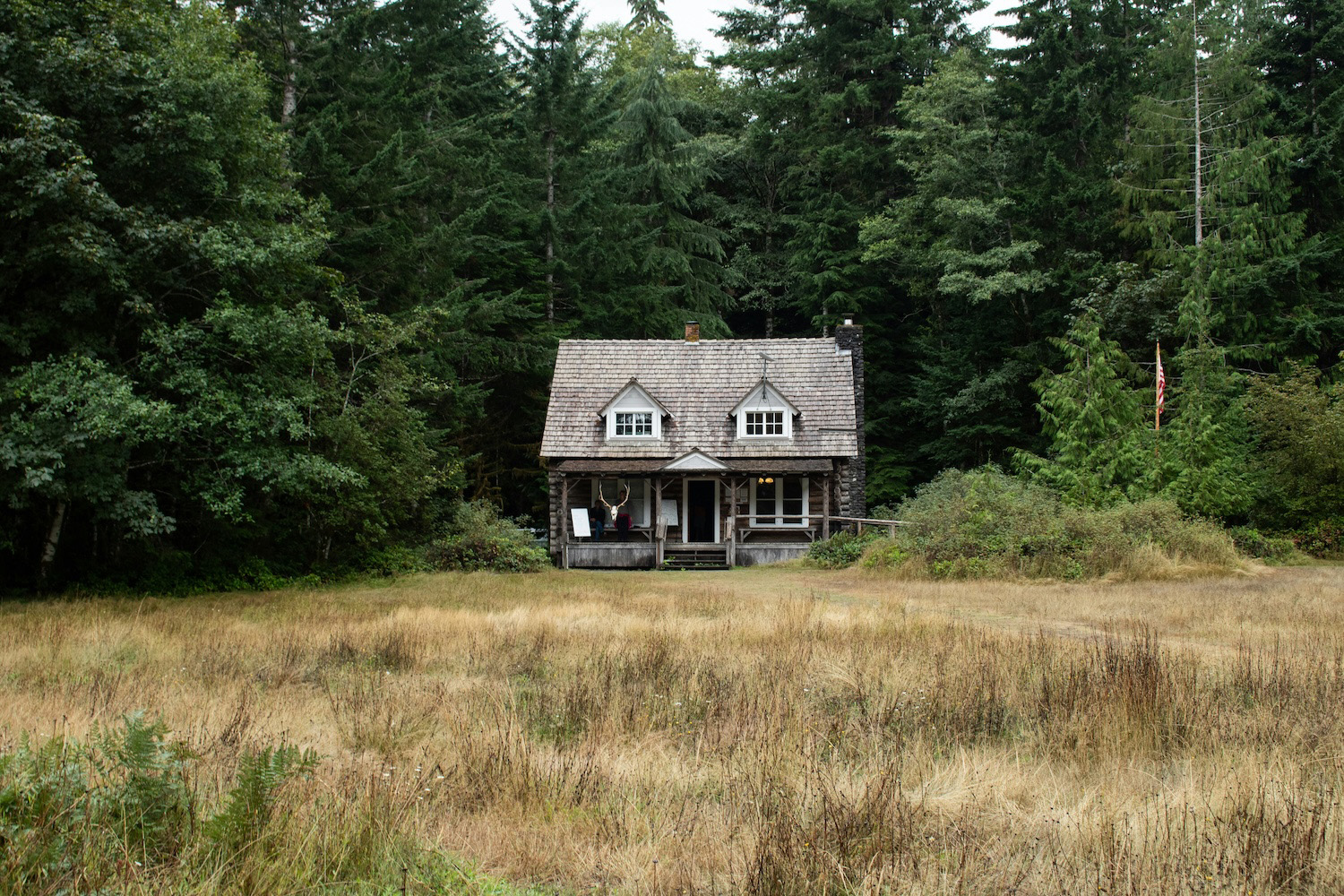
You’ll start on the Marymere Falls Trail—a family-friendly, shorter hike worth checking out—before branching off toward Mount Storm King after about half a mile. This initial section of the trail is well-maintained and winds through a stunning old-growth forest filled with massive Western Cedars and Sitka Spruce. Take a moment to appreciate these truly towering trees!
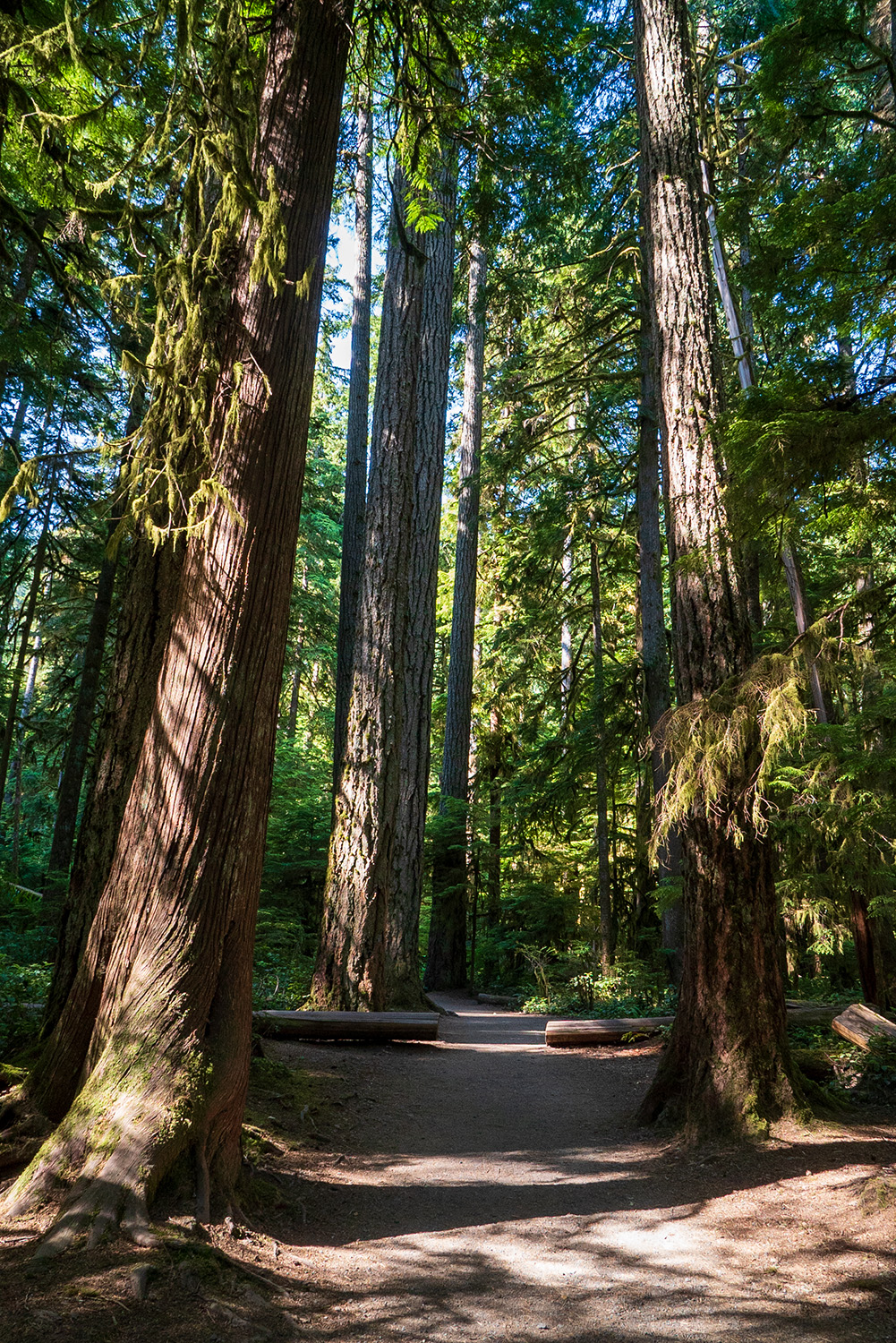
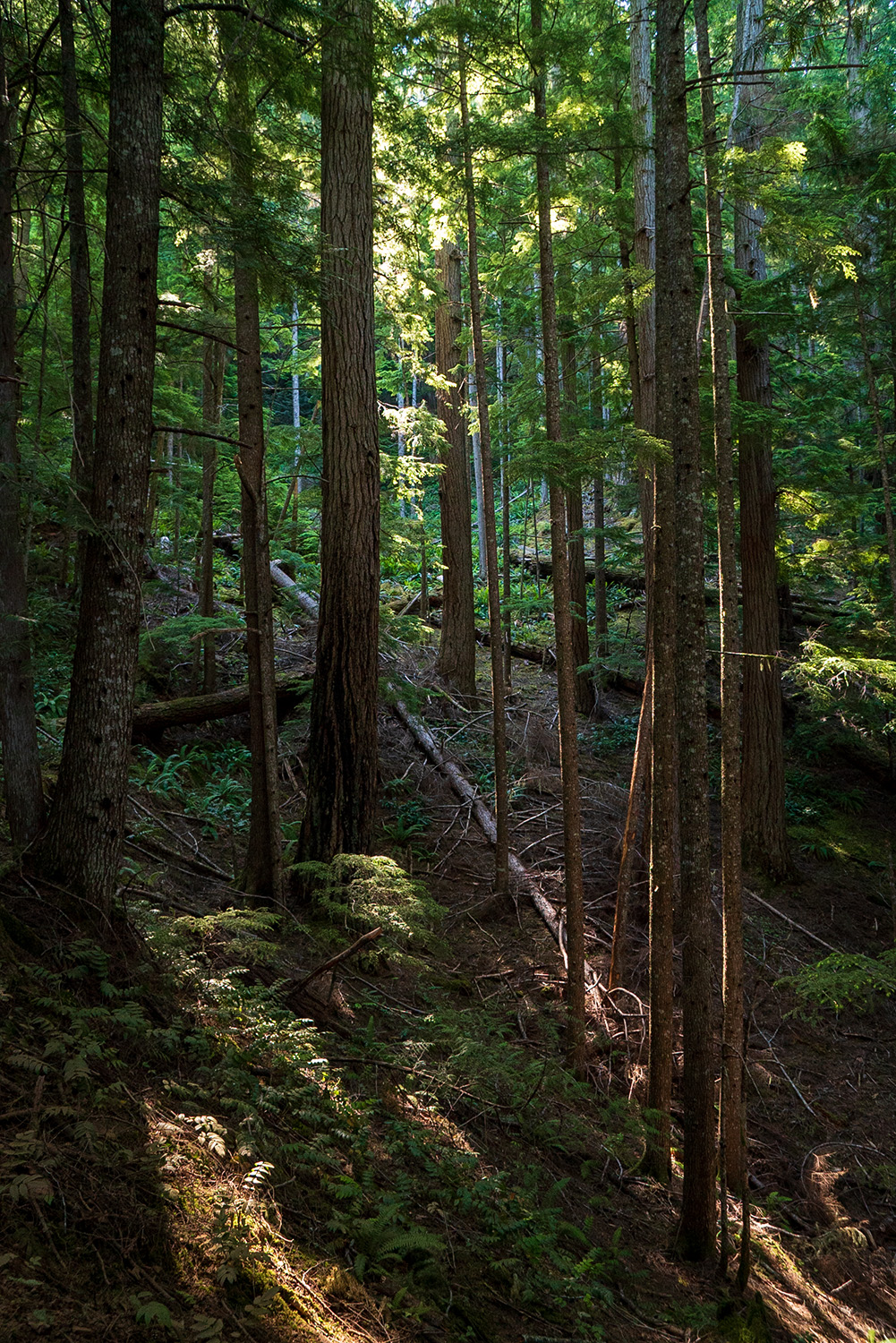
After the pleasant, flat half-mile, the trail quickly transitions into a steep climb. The switchbacks begin immediately, and you’ll be grateful for them as they help ease the dramatic elevation gain. The forest here is cool, damp, and shaded as you ascend the steep valley slopes. As you climb higher, the late-morning light starts to filter through the trees, gradually warming the air around you.
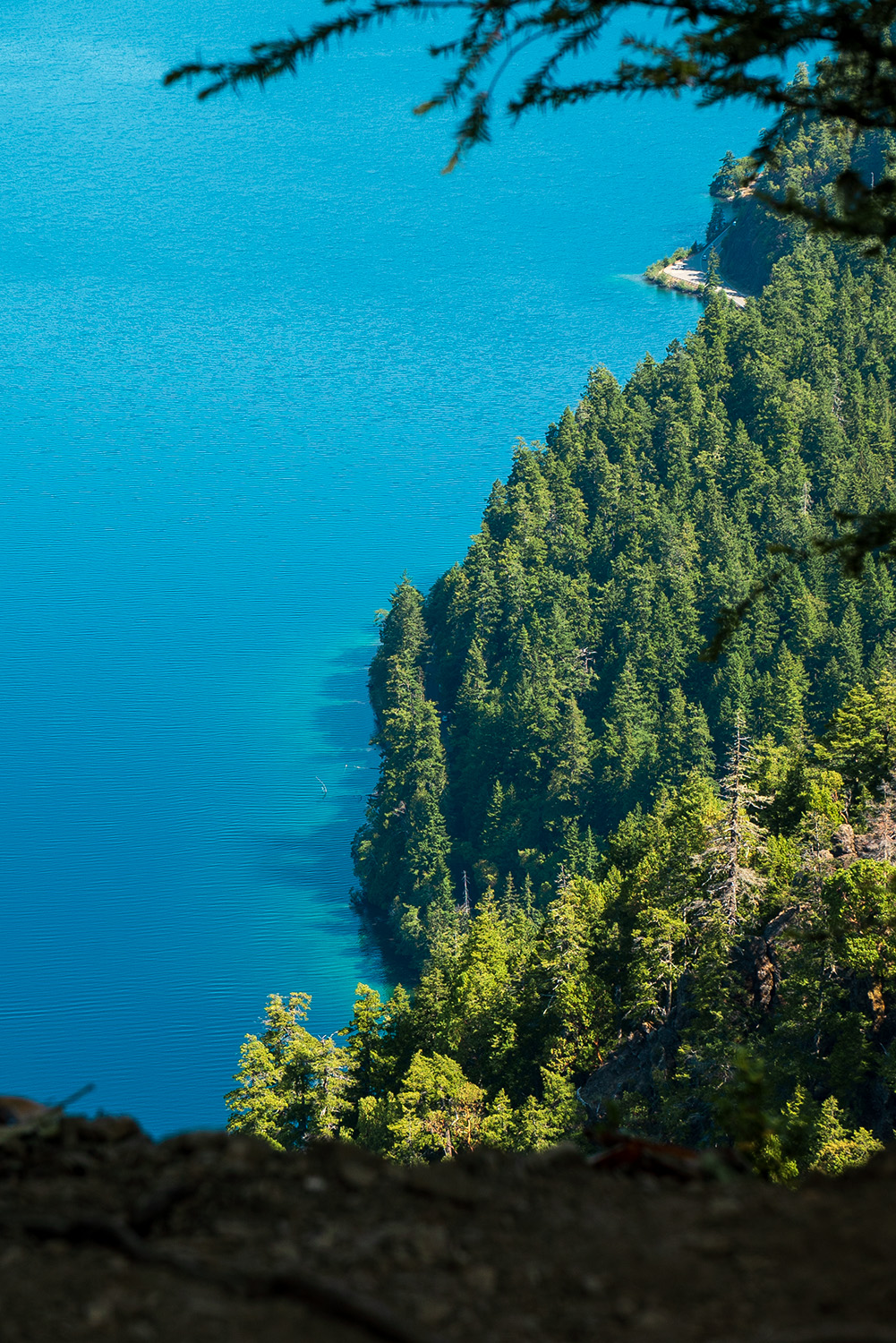
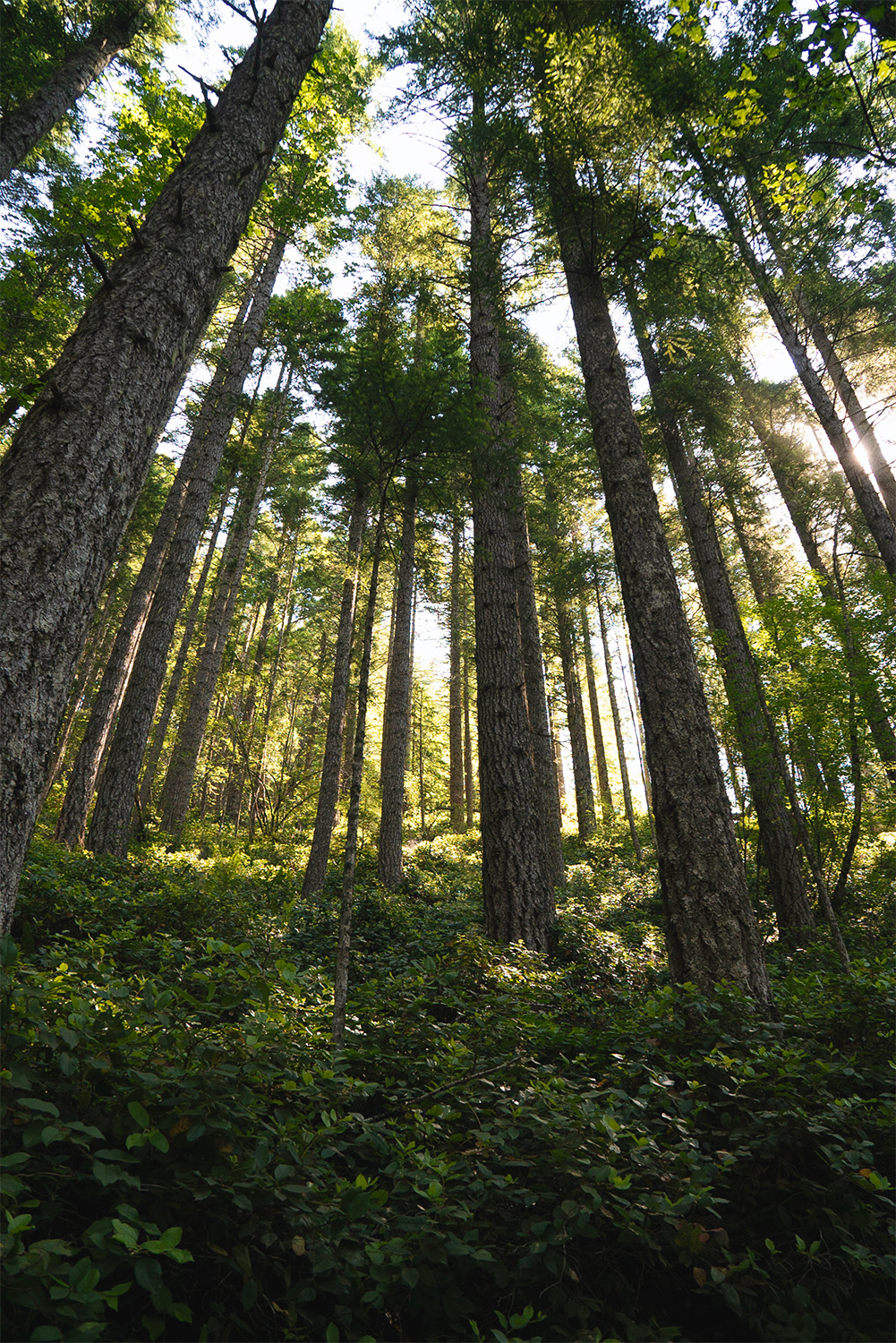
Despite the relentless climb—over 2,100 feet of elevation gain—there are a few brief sections where the trail levels out, offering a welcome break. Along many of the switchbacks, you’ll catch glimpses of distant views of Lake Crescent and the valley stretching deep into the Olympic Mountains. The lake’s waters are absolutely stunning, with shallow, sandy areas glowing a vibrant turquoise that gradually transitions into a rich, deep blue. It’s truly beautiful and undoubtedly one of the highlights of this hike.
At about 1.8 miles into the hike, the trail transitions from a maintained path to an unmaintained one, marked by a sign that reads, “End of Maintained Trail.” If you have a fear of heights, this might be a good place to turn around, as the trail ahead narrows along a steep, rocky ledge and shifts to loose, sandy dirt. Ropes are in place to help guide you higher up, but they’re not officially maintained. Just before the rope section, you may spot a pile of gloves left behind by other hikers. I grabbed a pair to prevent rope burn on my hands and returned them when I was done.
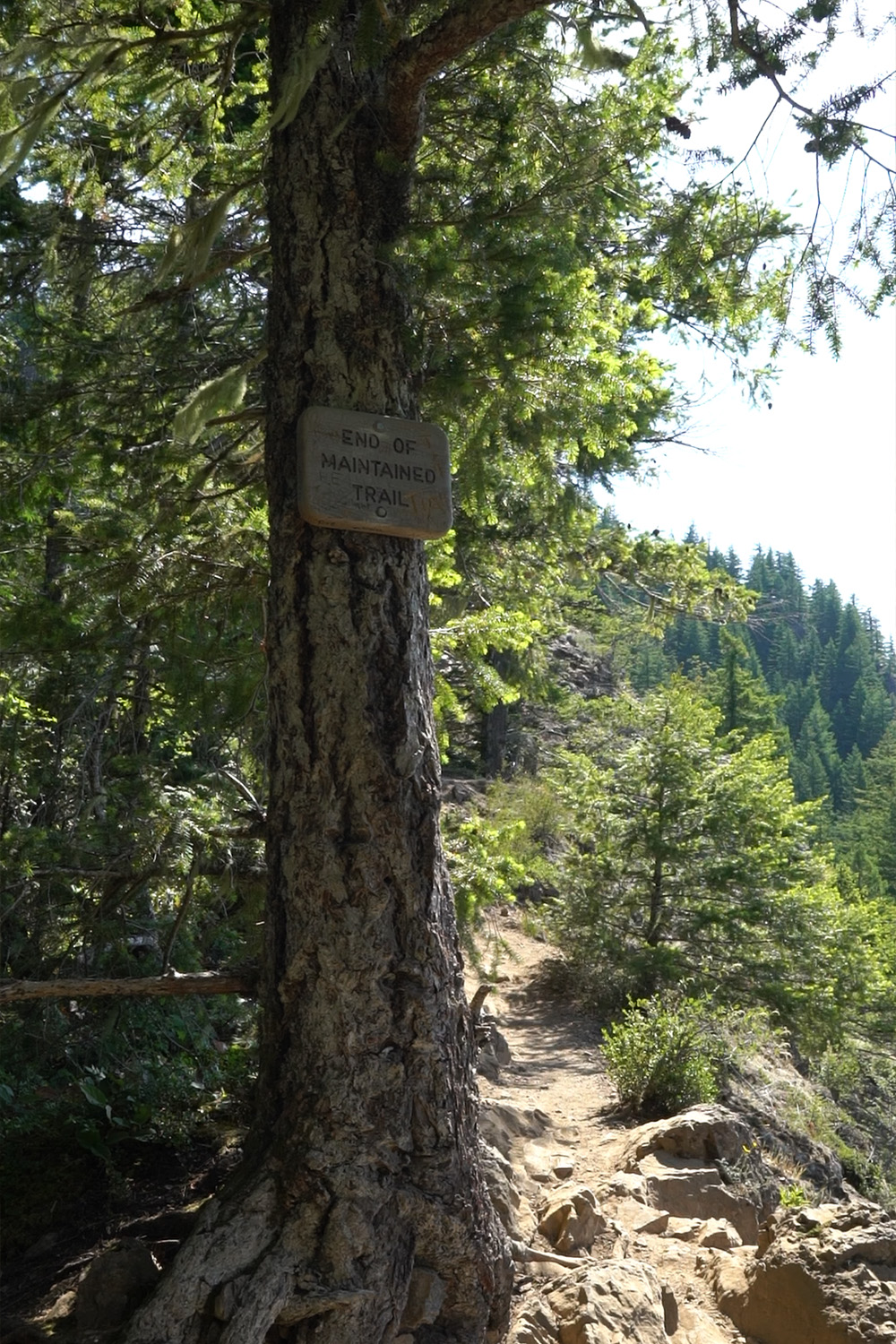
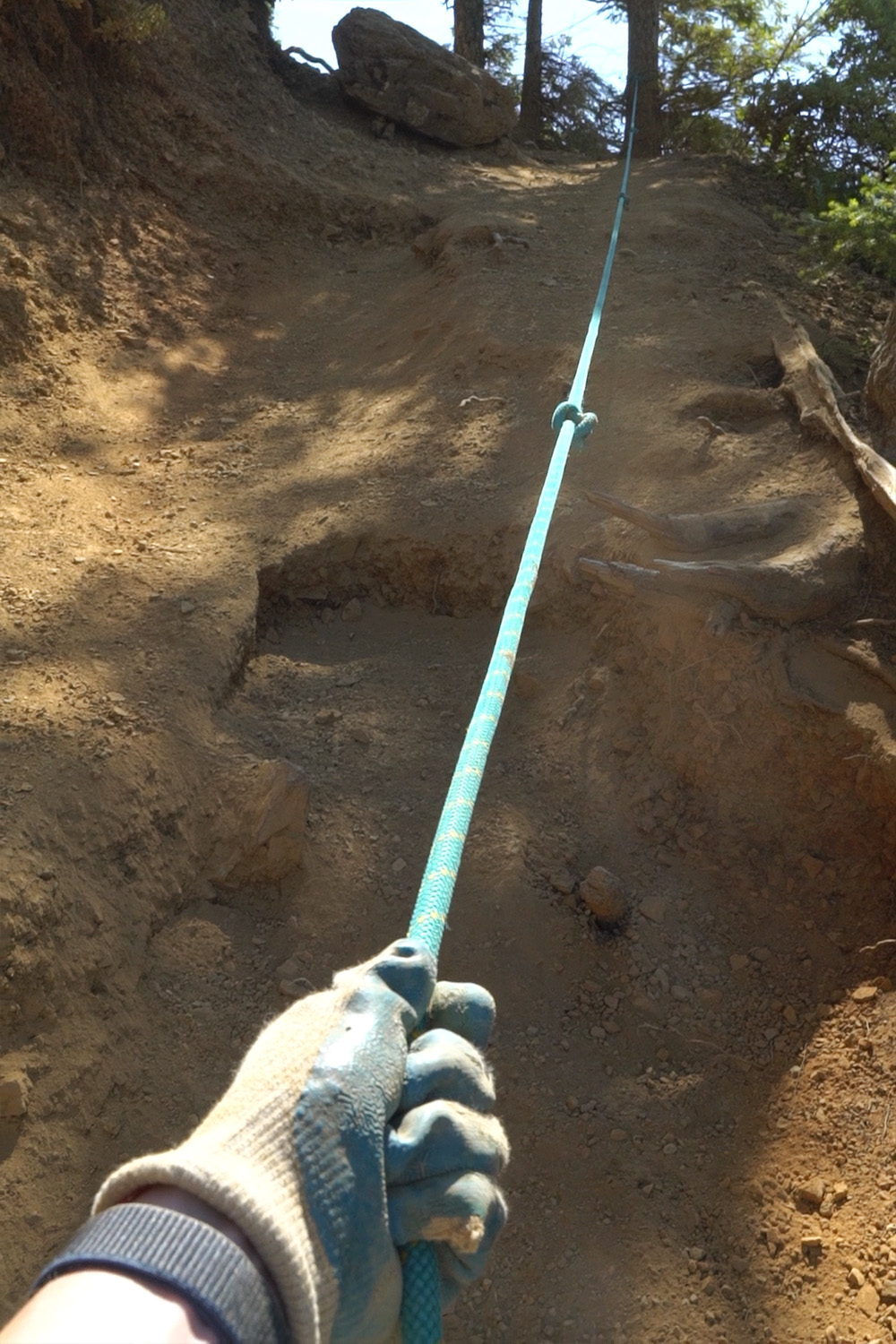
There are a few rope sections to navigate, but I personally didn’t find them too difficult. The real challenge for most people is the feeling of exposure and the heights rather than the physical effort. Anyone with a bit of upper-body strength can manage going up and down these sections, but if you’re uncomfortable with heights, it might be best to skip this part of the hike. If you enjoy rope climbs, though, you’ll love the ultimate Olympic hike to Blue Glacier, which features even more thrilling exposed rope ladder climbs.
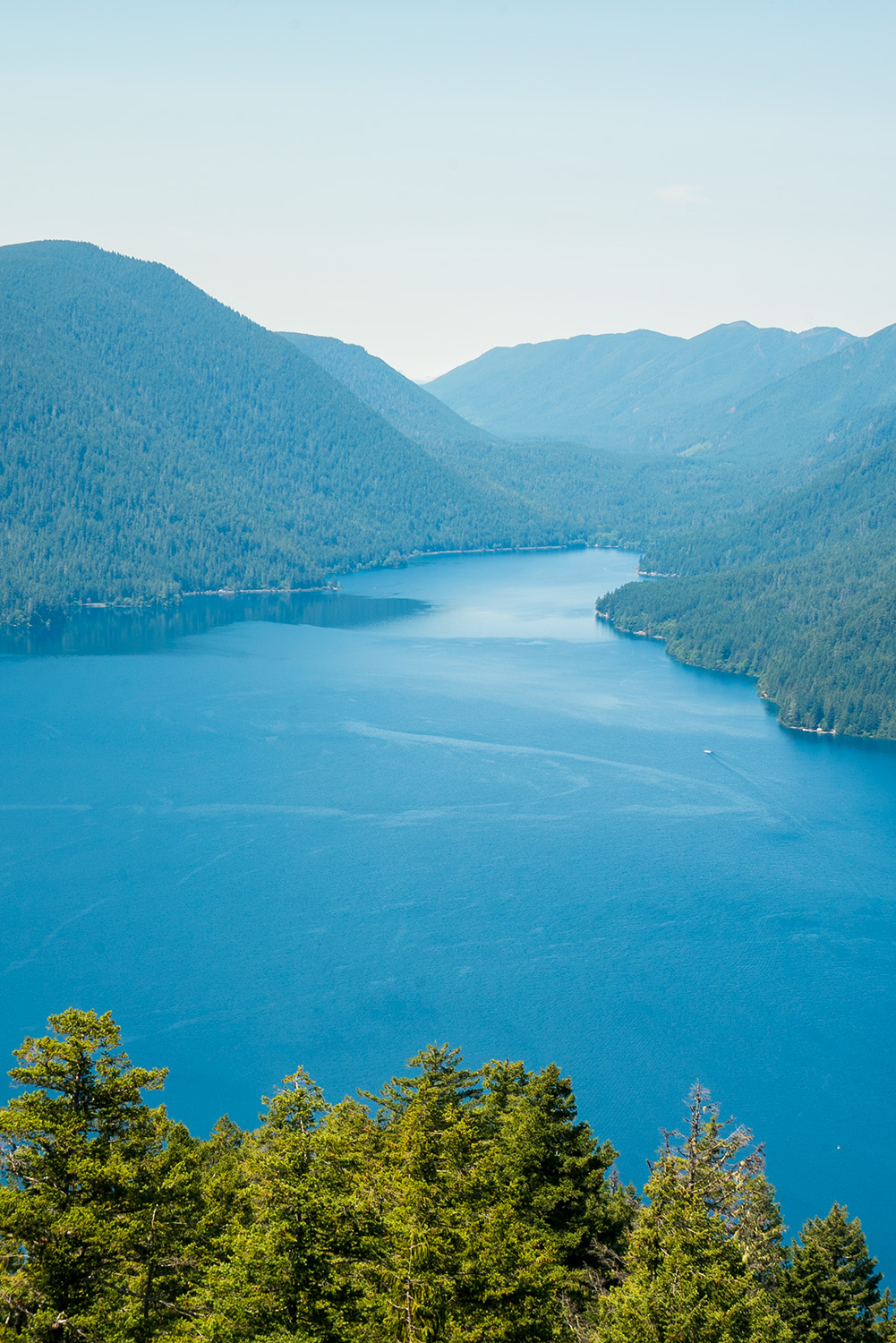
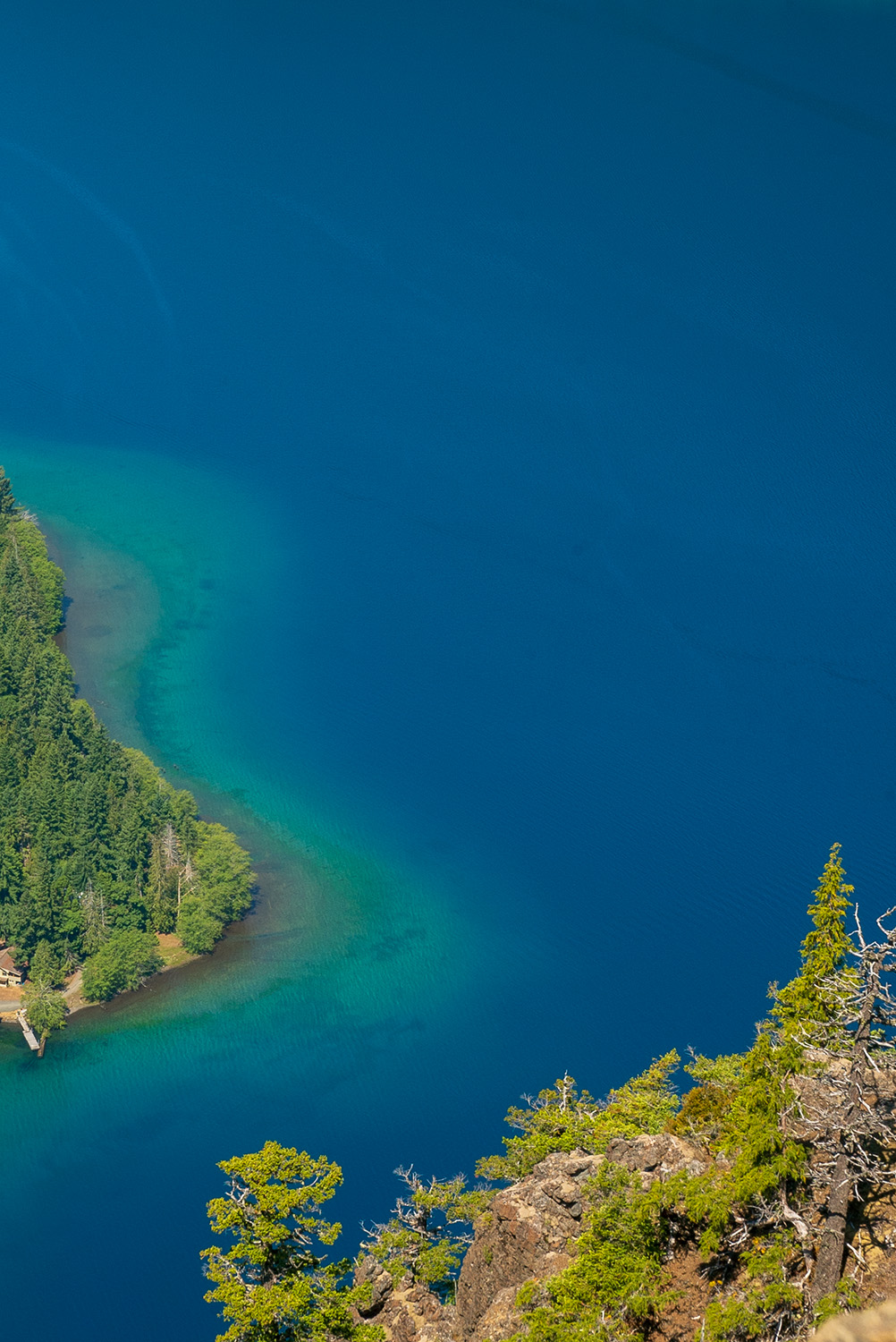
Caution: Avoid the rope section on icy days, as it can become dangerously slick. Safety first!
From the summit, you’re rewarded with stunning views of Lake Crescent, nestled among steep, rugged mountains. The lake was carved out by glaciers during the last Ice Age, around 15,000 years ago, resulting in its crystal-clear waters and remarkable depth—reaching up to 600 feet. If you’re lucky, you might even have a Canada Jay land on your hand while you take in the views. Just remember, as tempting as it might be, please don’t feed these curious birds!
Can you Camp at Mount Storm King?
Camping is not allowed at Mount Storm King. However, if you’re looking to stay overnight in the area, Fairholme Campground at the west end of Lake Crescent is a fantastic option for camping enthusiasts. It’s one of my go-to spots near Lake Crescent. If you prefer something more comfortable, check out Lake Crescent Lodge, which offers hotel-style accommodations for a more luxurious stay.
For even more options, the town of Port Angeles is just 30 minutes away and has a wider variety of accommodations, along with plenty of restaurants and shops.
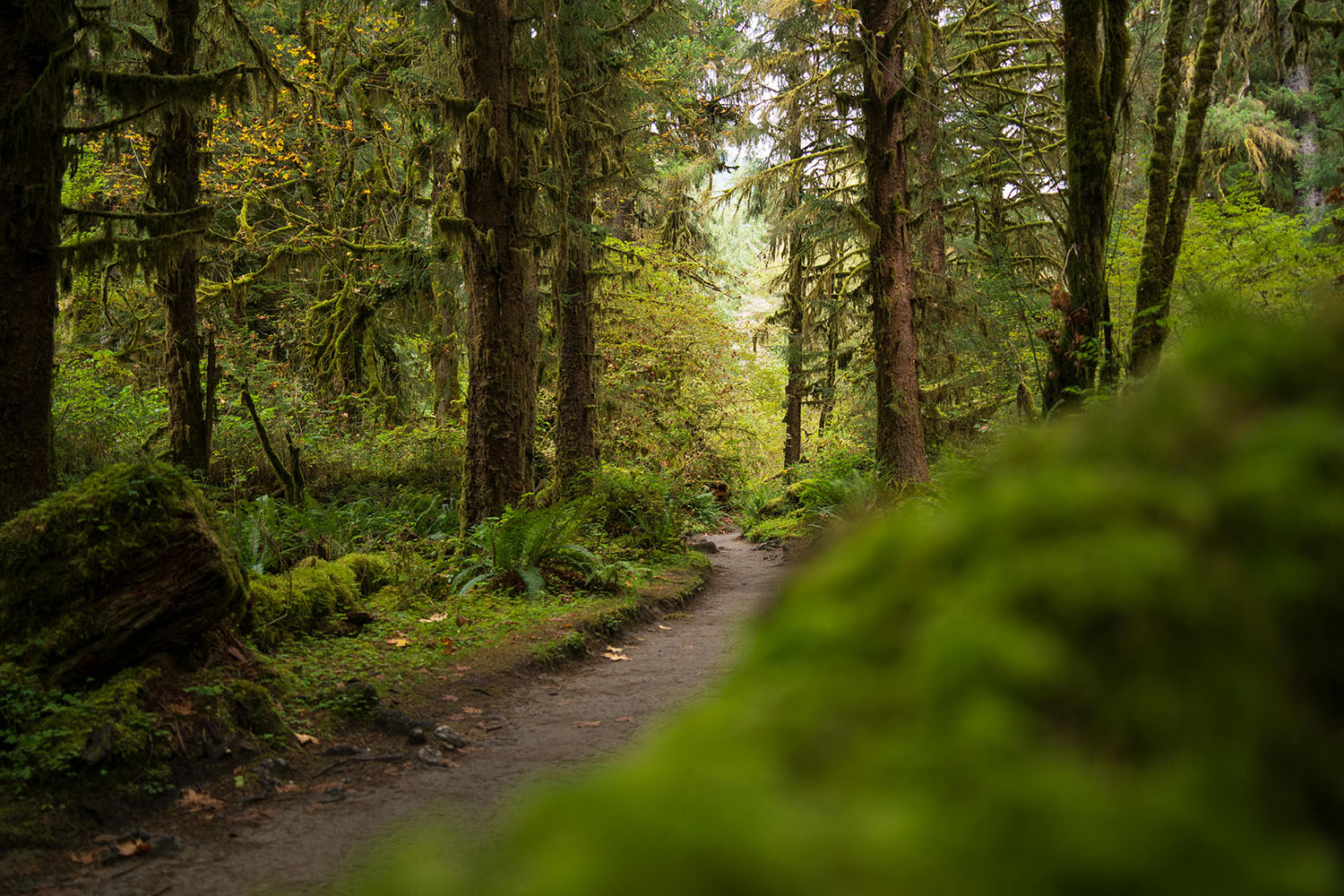
Are dogs allowed on the trail?
Dogs are not allowed on the trail.
Cell Service at Mount Storm King
You should be able to get cell service near the trailhead but once you start climbing you’ll likely lose service and then regain service towards the summit.
Water Along the Trail
There are no reliable water sources along the Mount Storm King trail, so it’s essential to fill up before starting your hike. Plan to bring at least 2 liters of water, and consider packing more if you’re hiking on a particularly hot day.
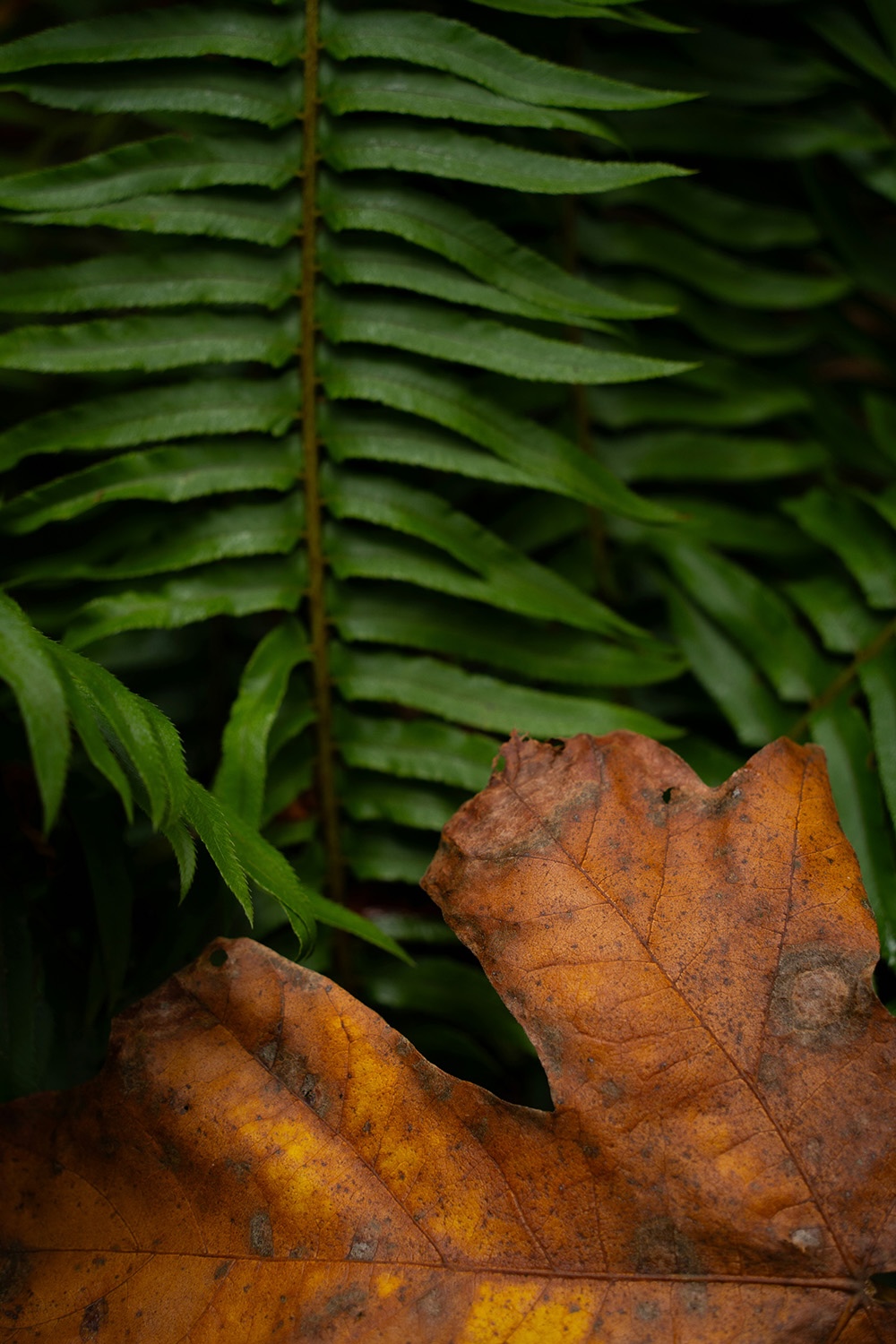
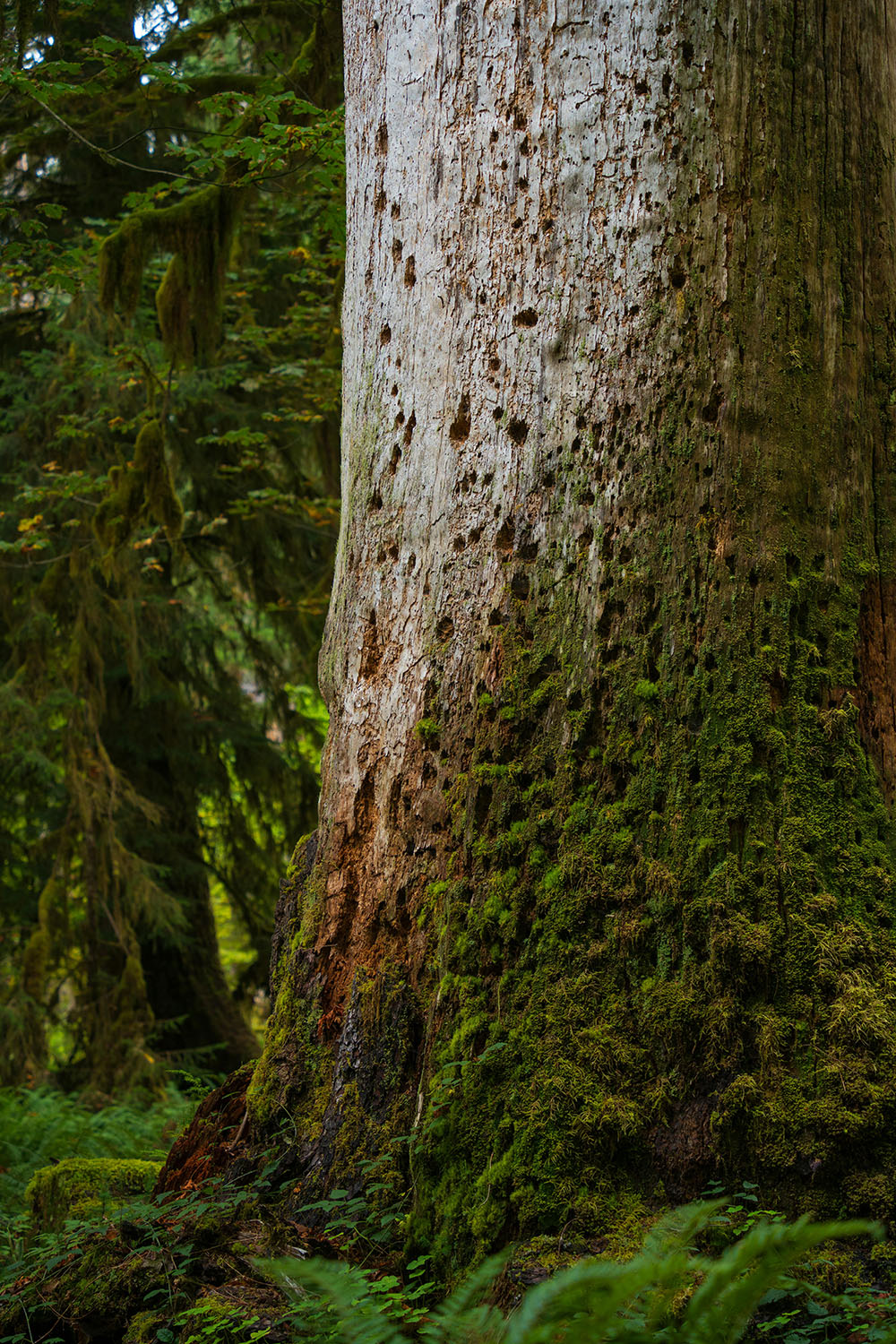
What to Pack for this Hike
You don’t need to overpack for this relatively short hike, but here are a few essentials I recommend bringing:
- 2 liters of water: There are no reliable water sources along the trail.
- Sunscreen: Some sections, especially near the top, are exposed to the sun.
- Hiking poles: These can be helpful if you have sensitive knees for the descent.
- Camera: The views are incredible—you’ll definitely want to capture them!
- Extra layers: The summit is often windy and cooler, with temperatures dropping about 7°F from the starting elevation.
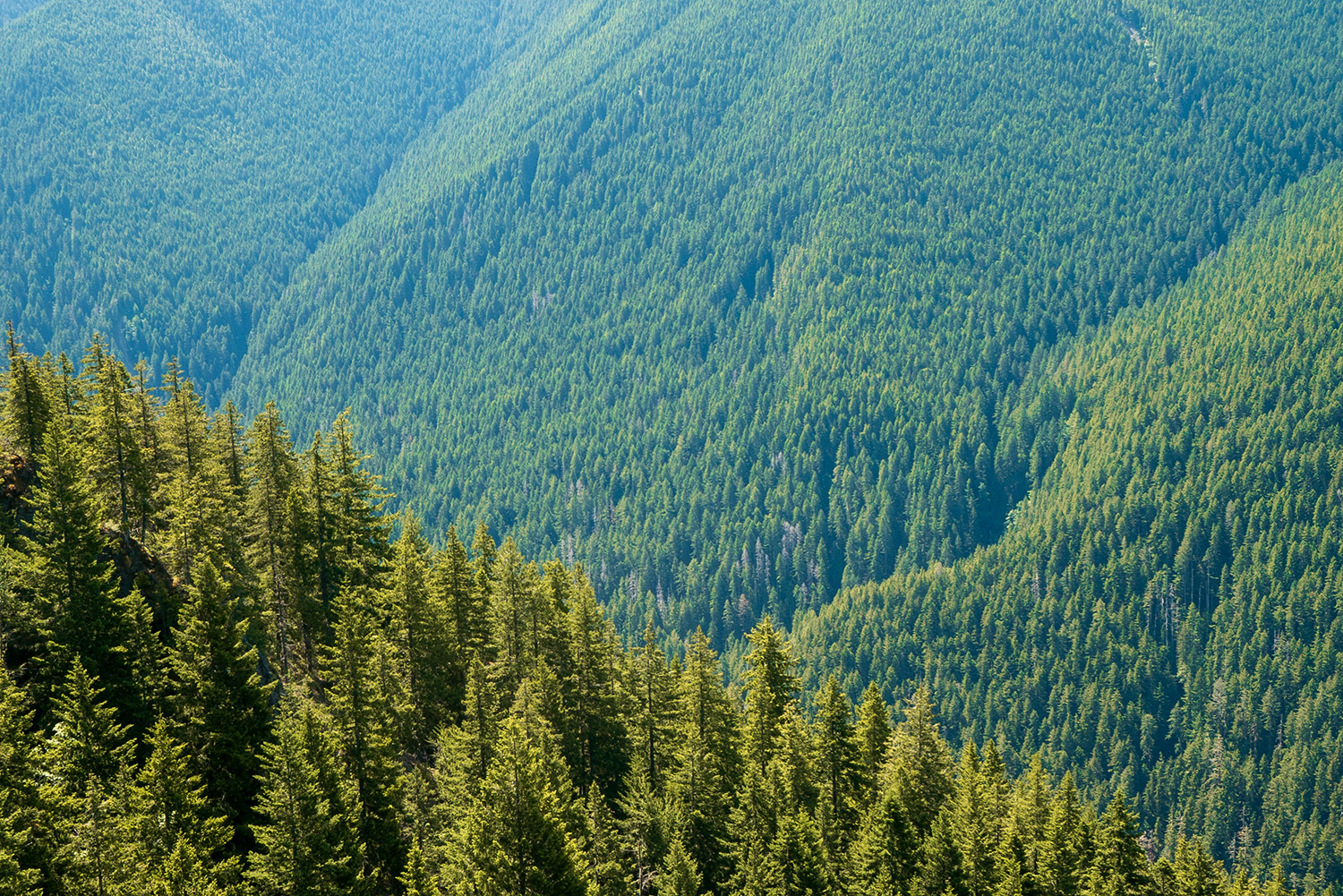
Post Hike Activities at Lake Crescent
After finishing your hike, if there’s still daylight, take some time to explore Lake Crescent near the lodge. When the lodge is open, you can grab a bite to eat or enjoy a refreshing post-hike beer while soaking in the stunning views. The lake’s beauty is truly incredible. And if you’re like me, don’t miss the chance to jump in for a refreshing dip—I always head straight for the nearest body of water after a hike for a cold plunge. It’s the perfect way to wrap up the day!
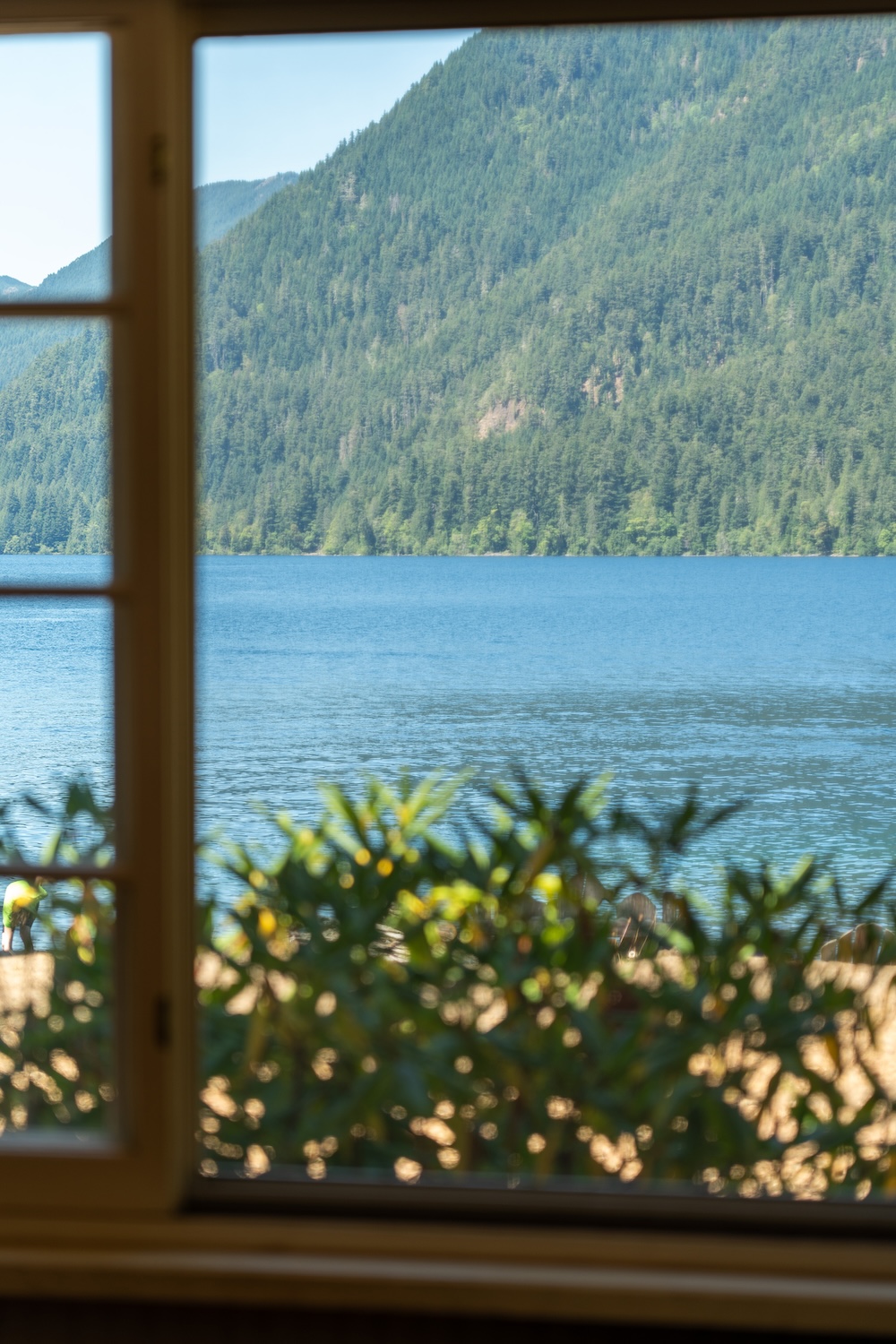
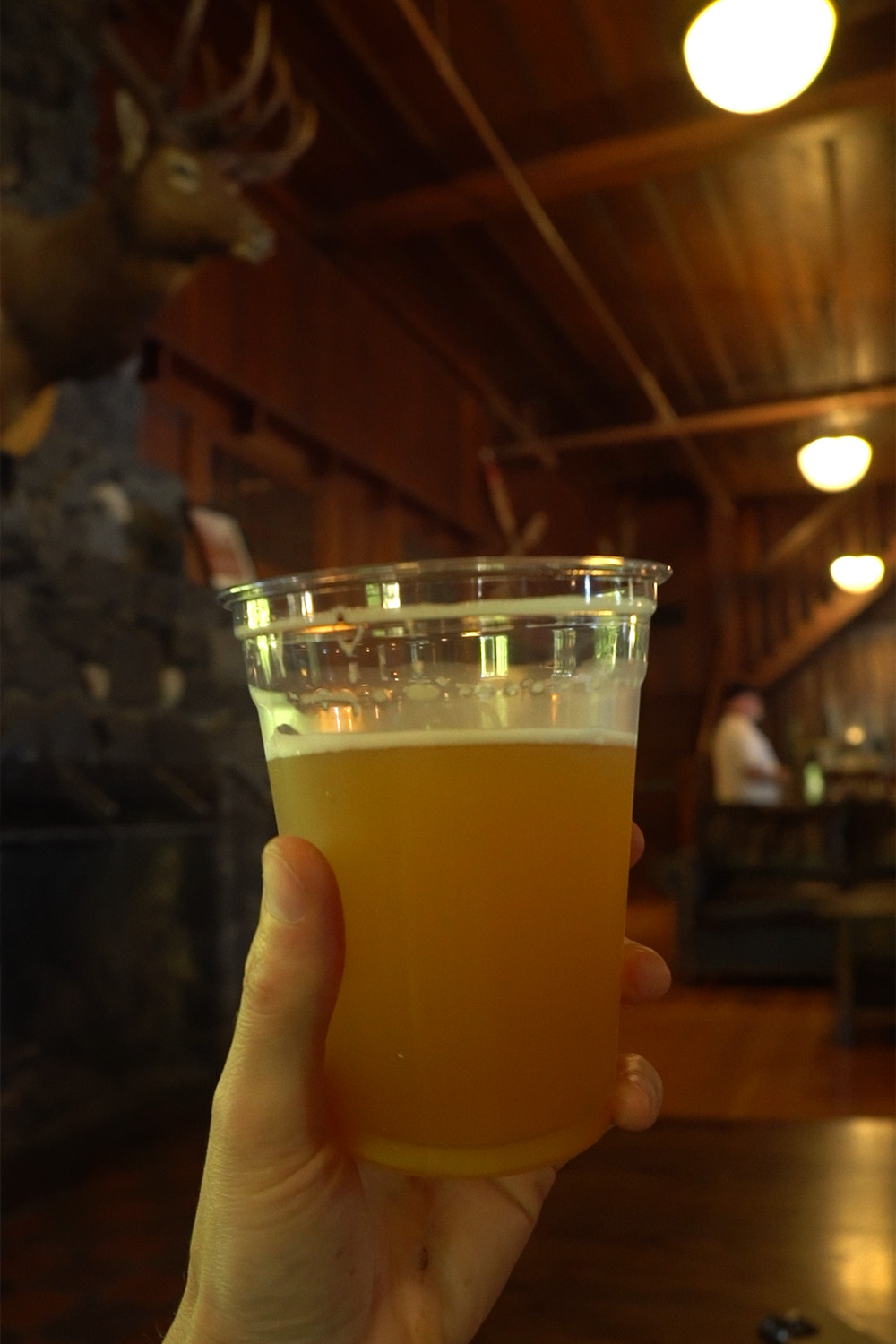
If you’re staying in Port Angeles or driving back that way, be sure to check out Next Door Gastropub for some excellent food. For dessert, stop by Welly’s Real Fruit Ice Cream for delicious New Zealand-style blended ice cream—it’s a must-try!
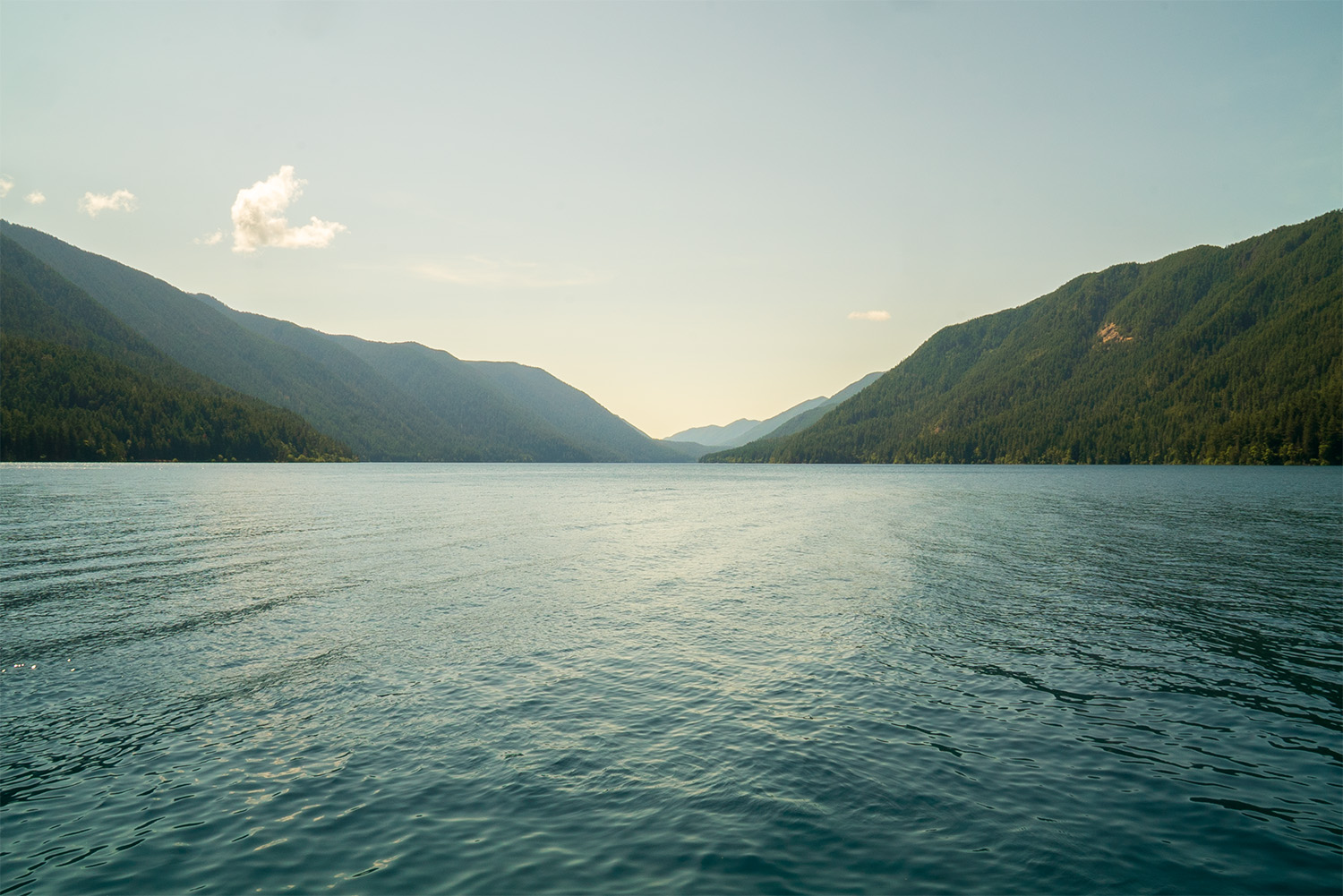
Mount Storm King is one of the most popular hikes in Olympic National Park, offering stunning views of Lake Crescent, a challenging 2,100-foot climb, and a rewarding summit experience. While it’s not the most scenic hike compared to some lesser-known trails in the park, its accessibility and epic mountain-and-lake vistas make it a go-to for many hikers.

